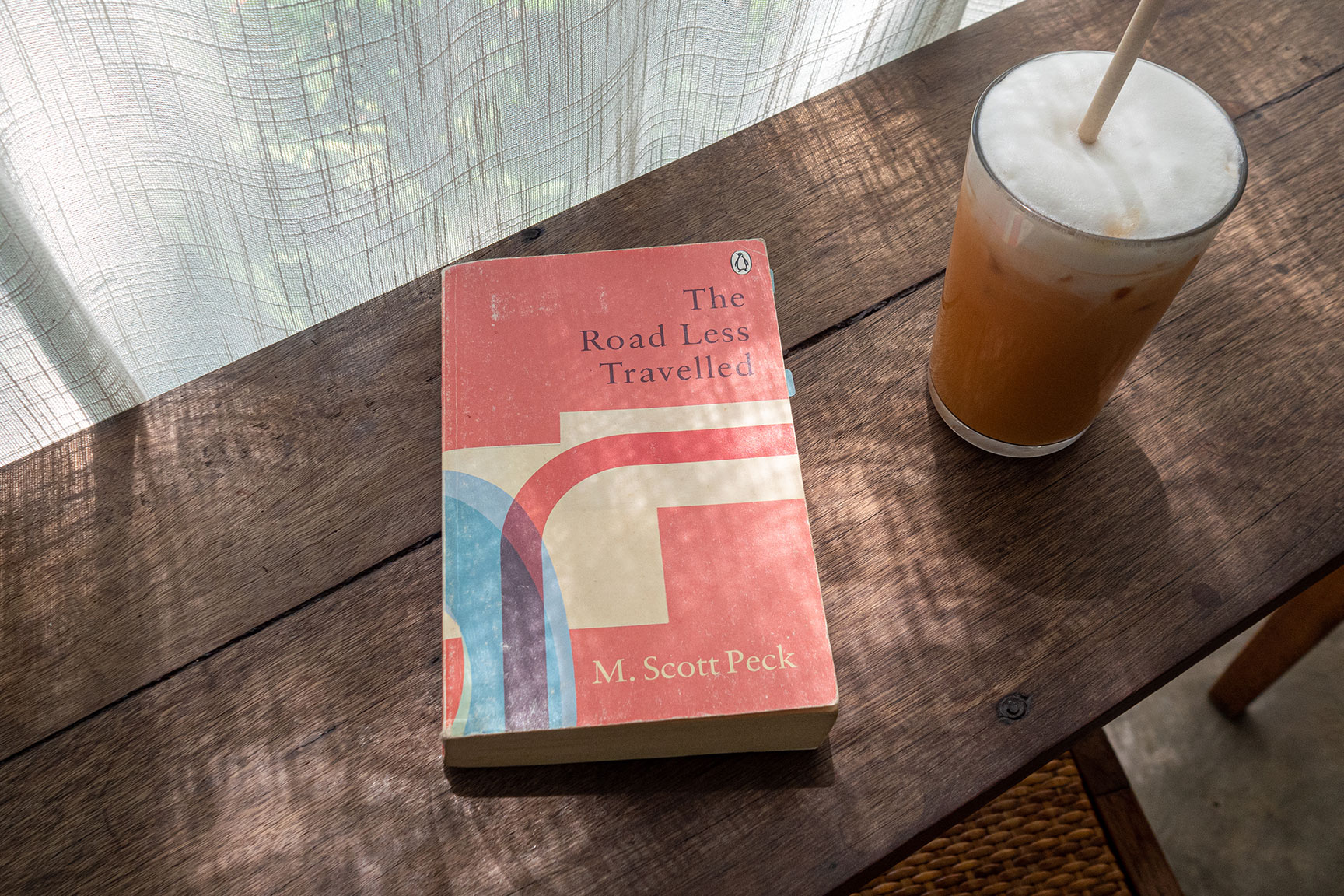- Lifestyle
Book Quotes : The Road Less Traveled by M. Scott Peck
When I’m in the mood for fiction books, I tend to keep reading until I reach the end. If I enjoy it, I’ll revisit my favorite parts, and maybe reread the entire book. However, with non-fiction books, I take a slower approach. As I progress through each paragraph, I make notes or highlight thoughts that resonate with me, and I take the time to reflect on them.
Currently, I’m nearing the end of ‘The Road Less Traveled by M. Scott Peck’. The book picked me and I love this edition I have (Published in 2020). I enjoy reading the book and contemplating the ideas and thoughts that the author shared. Each paragraph serves as a reminder of my perspective on us; human.
Please note that this is not a book review. The quotes shared here are simply a selection of my favorites, without the full context. I’m sharing them with gratitude for what I’ve read and with the intention of uplifting our spirituality and nurturing a better understanding within ourselves. If you’re interested in reading and learning more, you can purchase the book right away!
And here’re my favorite quotes from ‘The Road Less Traveled’ by M. Scott Peck that I’d love to share with you.

As Benjamin, Flanking said, “those things that hurt, instruct.” It is for the reason that wise people learn not to dread but actually to welcome problems and actually to welcome the pain or problems.
- M. Scott Peck, The Road Less Traveled
When we love something it is of value to us, and when something is of value to us we spend time with it, time enjoying it and taking care of it.
- M. Scott Peck, The Road Less Traveled
The energy required for the self-discipline of honesty is far less than the energy required for secretiveness. The more honest one is, the easier it is to continue being honest, just as the more lies one has told, the more necessary it is to lie again.
- M. Scott Peck, The Road Less Traveled
Decision affecting the lives of others must always be made. The best decision-maker are those who are willing to suffer the most over their decisions but still retain their ability to be decisive.
- M. Scott Peck, The Road Less Traveled
If your goal is to avoid pain and escape suffering, I would not advise you to seek higher levels of consciousness or spiritual evolution. First, you cannot achieve them without suffering, and second, insofar as you do achieve them, you are likely to be called on to serve in ways more painful to you, or at least, demanding of you, than you can now imagine.
- M. Scott Peck, The Road Less Traveled
I define love thus: the will to extend oneself for the purpose of nurturing one’s own or another spiritual growth.
- M. Scott Peck, The Road Less Traveled
Love is an act of will – namely, both an intention, and an action. Will also implies choice. We do not have to love. We choose to love. No matter how much we may think we are loving, if we are in fact, not loving, it is because we have chosen not to love, and therefore do not love, despite our good intentions. On the other hand, whenever we do actually exert ourselves in the cause of spiritual growth, it is because we have chosen to do so. Choice to love has been made.
- M. Scott Peck, The Road Less Traveled
The temporary release from ego boundaries associated with falling in love, sexual intercourse, or the use of certain psychoactive drugs may provide us with a glimpse of Nirvana, but not with Nirvana itself. It is a thesis of this book that Nirvana or lasting enlightenment or true spiritual growth can be achieved only through the persistent exercise of real love.
- M. Scott Peck, The Road Less Traveled
Love is the free exercise of choice. Two people love each other only when they are quite capable of living without each other, but choose to live with each other.
- M. Scott Peck, The Road Less Traveled
The only way to be assured of being loved is to be a person worthy of love, and you cannot be a person worthy of love when your primary goal in life is to passively beloved.
- M. Scott Peck, The Road Less Traveled
When we genuinely love we do so because we want to love. We have children, because we want to have children, and if we are loving parents, it is because we want to be loving parents. It is true, that love involves a change in the self, but this is an extension of the self rather than a sacrifice of the self.
- M. Scott Peck, The Road Less Traveled
Listen to your child enough, and you will come to realize that he or she is quite an extraordinary individual. And the more extra ordinary you realize your child to be, the more you will be willing to listen. And the more you will learn.
- M. Scott Peck, The Road Less Traveled
The more you know about your child, the more you will be able to teach. Know little about you children, and usually you will be teaching things that either they are not ready to learn or they already know and perhaps understand better than you.
- M. Scott Peck, The Road Less Traveled
The more children know that you value them, that you consider them extraordinary people, the more willing they will be to listen to you and afford you the same esteem. And the more appropriate you are teaching, based on your knowledge of them, the more eager your children will be to learn from you
- M. Scott Peck, The Road Less Traveled